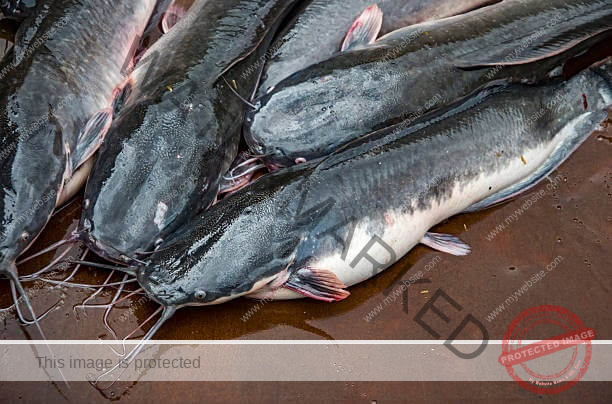In recent years, the agricultural industry in Nigeria has witnessed remarkable growth, positioning itself as one of the most lucrative and pivotal sectors of the economy. Among the various segments, fish farming stands out as a particularly attractive venture, offering substantial returns for dedicated farmers. However, while the potential for profit is promising, estimating the expenses involved in feeding a large quantity of catfish can be a challenging task. In this post, we will delve into the key factors affecting the cost of feeding 1,000 catfish in Nigeria.
Buying the Catfish:
To embark on a successful fish farming venture, the first step is acquiring the catfish juveniles. On average, each juvenile costs between N35 to N50, with N40 per fish being a reasonable estimate. Therefore, acquiring 1,000 catfish juveniles will amount to an average cost of N40,000.
Cost of Feeding the Fish for Six Months:
The next significant expense is the cost of feed required to nourish the catfish until they reach an average weight of 1 kilogram. Typically, it takes about 1 kilogram of feed to help a catfish gain 1 kilogram of weight. This means that for 1,000 catfish, approximately 1,000 kilograms of feed will be needed.
A standard bag of fish feed weighs between 13 kg and 17 kg, and its price varies between N8,000 and N12,000, depending on the brand. For the purposes of this post, we’ll consider a bag containing 15 kg of feed, priced at N8,000. This implies that 70 bags of feed, totaling N560,000, will be required to adequately feed the catfish over several months.
Additional Expenses:
Beyond the cost of purchasing catfish and their feed, there are several other crucial expenses that aspiring fish farmers should factor into their budget:
- Pond Setup and Maintenance: Whether you choose to rent a pond or build one, there will be associated costs. The expenses will vary based on location, with setups in places like Lagos likely to be more expensive.
- Habitat Preparation: This involves cleaning the pond, its surroundings, constructing erosion channels, and ensuring it is a suitable environment for the fish.
- Predator Protection: Safeguarding the fish from predators is paramount. Many opt for nets, which need to be constructed across the pond.
- Medication Costs: Just like any other animals, maintaining the health of the fish is crucial. Budgeting for medication ensures you are prepared for any unforeseen health issues.
- Other Miscellaneous Expenses: Consider factors like logistics-related costs and, if needed, hiring someone to monitor and feed the fish on a regular basis.
Conclusion:
In conclusion, fish farming in Nigeria is a lucrative endeavor with the potential for substantial returns. However, it’s essential to carefully estimate and plan for the various expenses involved, especially when it comes to feeding 1,000 catfish. By taking into account all the factors discussed above, aspiring fish farmers can gain a clearer understanding of the financial commitment required for a successful venture.

